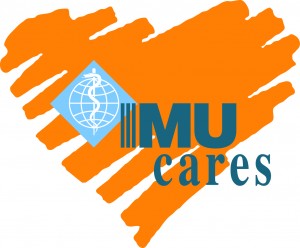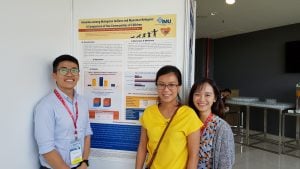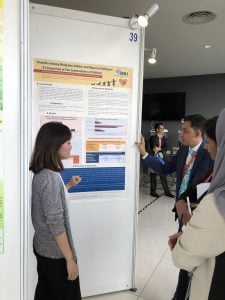[fusion_builder_container hundred_percent=”no” equal_height_columns=”no” menu_anchor=”” hide_on_mobile=”small-visibility,medium-visibility,large-visibility” class=”” id=”” background_color=”” background_image=”” background_position=”center center” background_repeat=”no-repeat” fade=”no” background_parallax=”none” parallax_speed=”0.3″ video_mp4=”” video_webm=”” video_ogv=”” video_url=”” video_aspect_ratio=”16:9″ video_loop=”yes” video_mute=”yes” overlay_color=”” overlay_opacity=”0.5″ video_preview_image=”” border_size=”” border_color=”” border_style=”solid” padding_top=”” padding_bottom=”” padding_left=”” padding_right=””][fusion_builder_row][fusion_builder_column type=”1_1″ layout=”1_1″ background_position=”left top” background_color=”” border_size=”” border_color=”” border_style=”solid” border_position=”all” spacing=”yes” background_image=”” background_repeat=”no-repeat” padding=”” margin_top=”0px” margin_bottom=”0px” class=”” id=”” animation_type=”” animation_speed=”0.3″ animation_direction=”left” hide_on_mobile=”small-visibility,medium-visibility,large-visibility” center_content=”no” last=”no” min_height=”” hover_type=”none” link=””][fusion_text] An IMU medical student, Kylie Yong Sze Tyng was given the opportunity to attend the Malaysian Paediatric Association (MPA) 40th Annual Congress 2018 with the theme “Marginalised Children, Addressing the Needs” with 3 other medical students (Cheng Quo Liang, Irfan Murshidi bin Ramli and Muhammad Marsaid bin Kardi).  The Malaysian Paediatric Association (MPA) 40th Annual Congress 2018 with the theme “Marginalised Children, Addressing the Needs” was held from 5 to 8 September 2018 in Ipoh. Students who were active in IMU Cares projects were encouraged to take this opportunity to attend the congress and exhibit their work in a scientific and structured method as the theme of the congress was very appropriate and in line with IMU Cares projects. During this Congress, 3 posters on the students’ work with IMU Cares projects were presented. [/fusion_text][fusion_table]
The Malaysian Paediatric Association (MPA) 40th Annual Congress 2018 with the theme “Marginalised Children, Addressing the Needs” was held from 5 to 8 September 2018 in Ipoh. Students who were active in IMU Cares projects were encouraged to take this opportunity to attend the congress and exhibit their work in a scientific and structured method as the theme of the congress was very appropriate and in line with IMU Cares projects. During this Congress, 3 posters on the students’ work with IMU Cares projects were presented. [/fusion_text][fusion_table]
| The title of the 3 posters were: |
|---|
| Anaemia among Malaysia Indians and Myanmar Refugees: A Comparison of Two Communities of Children. (based on C3 Community Kapar IMU Cares Project and Little Flower Learning Centre Seremban) |
| Nutrition Status of Rohingya Refugees School Aged Children (based of ROH Community School Seremban) |
| Measurable Interventions to Improve the Health Status of Rohingya Refugee Children (based of ROH Community School Seremban) |
[/fusion_table][fusion_text]  The students were mentored by lecturers from the Paediatric Department of IMU’s Clinical School (Dr Ong Jun-Jean, Dr Meenal Mavinkurve and Datuk Dr Soo TL). With the assistance of Datuk Dr Soo, the students were able to serve during the congress as volunteers and help throughout the conference. Their registration fee which was a large amount was waived for all four of them, providing them with a great experiential learning opportunity. As volunteers, these students were given tasks and responsibilities to ensure that the conference runs smoothly. Besides this, they also had to present their poster to the judges which was a huge feat for them. [/fusion_text][fusion_text] Kylie Yong Sze Tyng relates her experience here.
The students were mentored by lecturers from the Paediatric Department of IMU’s Clinical School (Dr Ong Jun-Jean, Dr Meenal Mavinkurve and Datuk Dr Soo TL). With the assistance of Datuk Dr Soo, the students were able to serve during the congress as volunteers and help throughout the conference. Their registration fee which was a large amount was waived for all four of them, providing them with a great experiential learning opportunity. As volunteers, these students were given tasks and responsibilities to ensure that the conference runs smoothly. Besides this, they also had to present their poster to the judges which was a huge feat for them. [/fusion_text][fusion_text] Kylie Yong Sze Tyng relates her experience here. 
“Having the opportunity to attend the 40th Malaysian Paediatric Association (MPA) Annual Congress 2018: Marginalised Children – Addressing the Needs, Leaving No Child Behind Towards SDG as a medical student was an eye-opener for me. I always had a fixed mindset that going to a conference during my medical school life is not relevant, but I found that it was something new and unfamiliar, which encouraged me to step out from my comfort zone. It unquestionably provided me a huge positive professional learning experience, from preparing and designing to presenting the poster to a group of pediatricians with an array of knowledge.”
“This conference has definitely allowed me to reflect on and expand my thoughts about the lifelong medical practice. As a medical student, we are learning about the scientific side of medicine most of the time but through this multitude of new experiences, I learnt about humanities and the art of medicine again. My perspectives have definitely broadened, and I would like to express my utmost gratitude to my advisor, Dr Ong Jun-Jean and Datuk Dr Soo Thian Lian for all their guidance and support.”
“At the congress, I presented a poster with the topic Anemia among Malaysian Indians and Myanmar Refugees: A Comparison of Two Communities of Children. This poster depicted anemia faced by both marginalised communities of children who are receiving assistance in the form of education and healthcare from our University’s very own project – IMU Cares. Our work was not as perfect as I wanted it to be, but I am glad that I was able to interact and receive feedback from the experienced medical professionals for improvement.” “I also enjoyed attending a number of interesting sessions at the conference. The topics that interested me were mainly about social welfare and humanities such as Child Protection, The Abused Child and Supporting Our Immigrant Children. There were also panel sessions which addressed the underlying real issues faced by the marginalised communities in Malaysia.” “I am truly amazed by the dedication and compassion of the activists and NGOs. Efforts of reaching out to the marginalised community are on-going, but more help is needed and awareness in both the public and healthcare sectors needs to be raised.” [/fusion_text][/fusion_builder_column][/fusion_builder_row][/fusion_builder_container]



